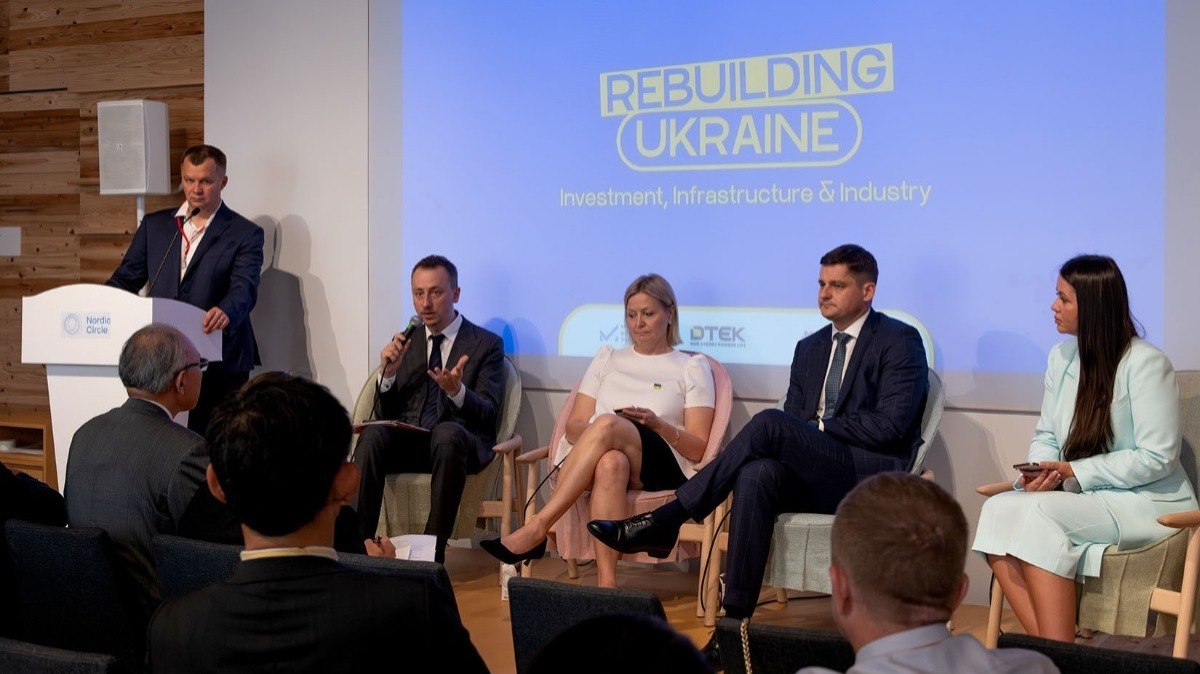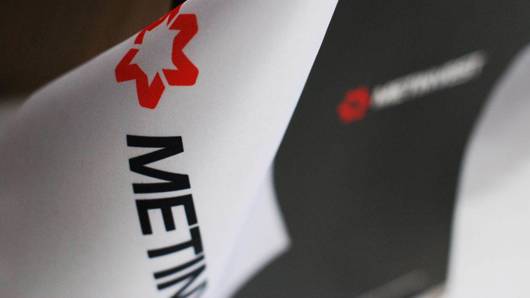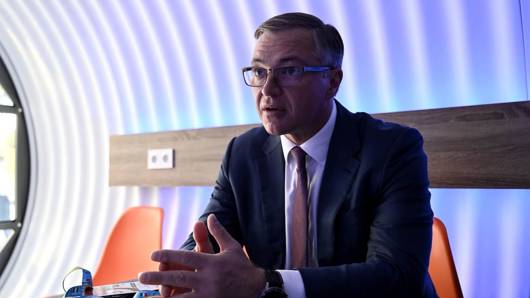During the Ukraine-Japan Forum on promoting Ukraine’s economic recovery held on 4 August in Tokyo, Volodymyr Zhukov, Marketing Director of Metinvest Group, talked about Metinvest’s main focus, attracting financing and challenges facing export-oriented business.
The aim of the forum is to deepen business relations between Ukrainian and Japanese companies and to discuss opportunities for public and private sector cooperation to support Ukraine’s sustainable economic recovery. The event focused on strengthening ties between the two countries, primarily in the fields of energy and infrastructure, the development of manufacturing and industrial parks, agricultural processing, as well as improving business conditions during wartime. Government representatives, and those from leading specialised organisations and businesses from both countries, took part in the forum. Japan’s Ministry of Economy, Trade and Industry initiated the event in cooperation with Ukraine’s Ministry of Economy, Environment and Agriculture and with the support of the Japan External Trade Organisation (JETRO).
Volodymyr Zhukov joined the “Ukraine Business Environment and Resilience” panel. The discussion also featured Oleksii Sobolev, Minister of Economy, Environment and Agriculture of Ukraine, alongside executives from JETRO Kyiv, Fujikura Automotive Ukraine, Nippon Export and Investment Insurance and Oschadbank.
In addition, 6 August marked Ukraine’s National Day at EXPO 2025 in Osaka, which was supported by Metinvest Group, the initiator of the After the Line business event. It was dedicated to shaping Ukraine’s economic future. Representatives from Ukraine and Northern European countries discussed the restoration of critical infrastructure, enhancing energy security and focused on Ukraine’s investment opportunities.
Metinvest’s Marketing Director also joined the “Rebuilding Ukraine: Investments, Infrastructure and Industry” panel. In addition, the discussion featured Nita Pilkama, Finland’s Commissioner General, Oleksii Sobolev and a representative from Oschadbank.

Zhukov noted that, following the loss of its enterprises in Mariupol, Metinvest has continued to operate, albeit with reduced production volumes. Currently, the Group generates around 70% of its revenue from exports and 30% from the domestic market. Steel consumption is gradually recovering, thanks in part to infrastructure projects in which Metinvest has deep expertise and serves as a steel supplier.
He added that, compared to 2021, the Group has significantly reduced its investments, focusing on maintaining current operations and implementing small-scale investment projects in energy generation and production.
Zhukov stated: “However, our strategy remains unchanged – to be a producer and supplier of high-grade iron ore and low-emission steel. New technologies for low-carbon steel production require exactly this type of ore, and Ukraine holds an advantage here thanks to substantial reserves and the potential for their extraction and beneficiation.”
He said that to restore the product line that has been missing since the loss of the Mariupol plants, the Group will need additional steelmaking and rolling capacities.
Metinvest’s Marketing Director said: “The implementation of these plans will largely depend on how successfully we manage to preserve current production volumes.”
Among the challenges faced by an export-oriented company like Metinvest, he highlighted the numerous restrictive measures being introduced globally, particularly in Europe, to support local producers.
Zhukov noted: “CBAM [the Carbon Border Adjustment Mechanism] was introduced and will come into full effect on 1 January 2026. We must be prepared to avoid its negative consequences. In this context, international cooperation and the involvement of the global community working on this issue are extremely important.”
In his view, for Ukraine to gain maximum value from its iron ore reserves through the production of high value-added products, there is a need for international cooperation in the areas of investment, financing and support in stopping the aggressor.
Zhukov added: “Although economic sanctions are in place against Russia, unfortunately, there are exceptions that allow its steel to be sold to the European Union. The revenues from this flow into the aggressor’s budget and finance the war. This is precisely where the international community must play a key role.”
Metinvest’s Marketing Director also shared the Group’s experience of attracting financing during the war. He noted that the decisive factor is the cost of financing, which remains high due to country risk and, accordingly, increased interest rates. International cooperation helps to find solutions and tools to provide more affordable lending rates.
Zhukov said: “This year, we secured financing for one of our projects, which we are jointly implementing with a Finnish equipment supplier. The funds were obtained through the Finnish export credit agency. This is an excellent example of international cooperation with significant potential for scaling up.”
At the same time, Oleksii Sobolev, Minister of Economy, Environment and Agriculture of Ukraine, noted that one of the tools to reduce country risk is war-risk insurance. A bill has already been introduced in parliament providing for the establishment of an agency that will compensate companies operating in Ukraine for the cost of such insurance through global reinsurers.
Sobolev stated: “First, there is a major war-risk insurance programme. Second, there is affordable lending, where the state covers part of the interest rate. We are working with international partners to expand this mechanism and cover as many sectors as possible. The third area is support for regions located closer to the front line. Here, it is important to provide initial capital in the form of investments, create funds to reduce investment risks or offer grants to companies. This will help restore their asset base, secure additional loans and launch a new stage of growth.”









